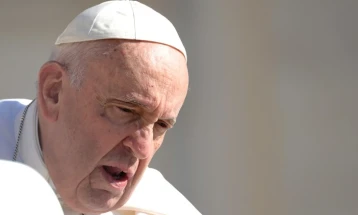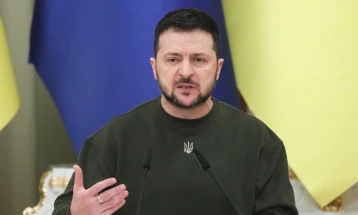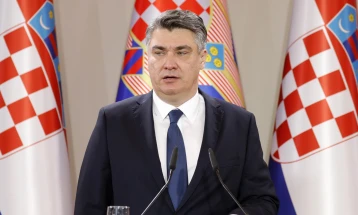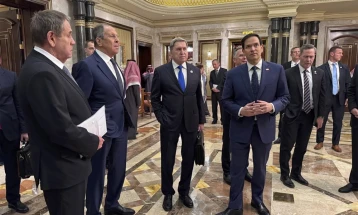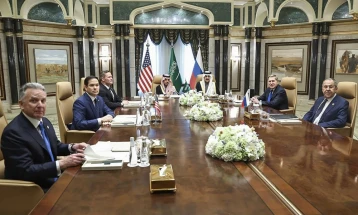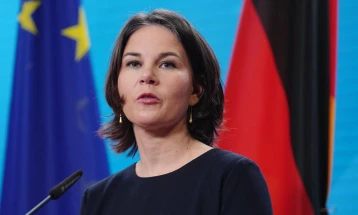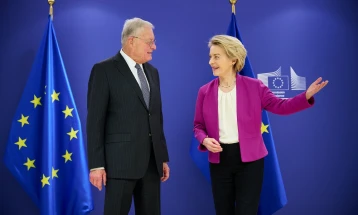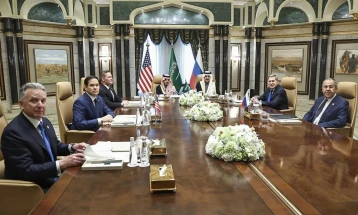Scholz hits back at Vance as Munich Security Conference enters day 2
- German Chancellor Olaf Scholz vehemently rejected remarks made by US Vice President JD Vance after he lectured European leaders on democracy and free speech, with the German leader hitting back on day two of the Munich Security Conference (MSC) on Saturday.
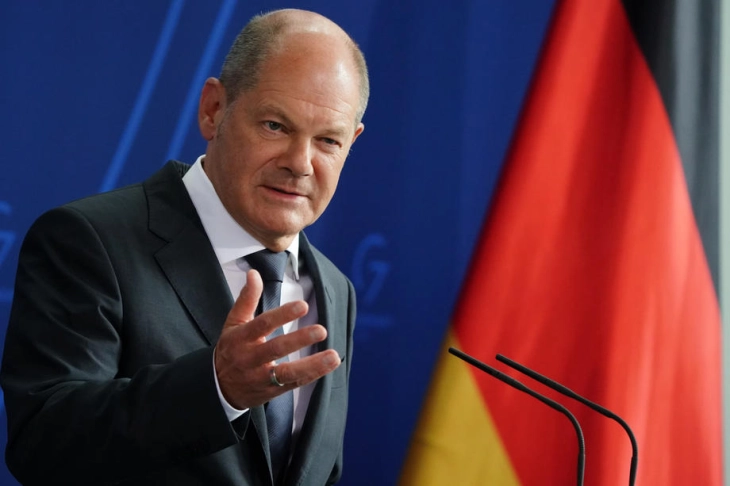
Munich, 5 February 2025 (dpa/MIA) – German Chancellor Olaf Scholz vehemently rejected remarks made by US Vice President JD Vance after he lectured European leaders on democracy and free speech, with the German leader hitting back on day two of the Munich Security Conference (MSC) on Saturday.
Vance's much-anticipated speech on the first day of the high-profile gathering of world leaders and foreign policy experts stunned Washington's European allies after he sharply criticized mainstream European politicians as insufficiently democratic, demanding more openness to right-wing populists and urging a crackdown on migration.
The comments come at a particularly delicate time for Germany, where the far-right Alternative for Germany (AfD) is polling in second place ahead of elections on February 23. Mainstream parties have all vowed to maintain a political "firewall" to keep the anti-immigration, eurosceptic party from power.
Scholz slammed Vance for his remarks, insisting there should be no outside interference in the German election campaign.
Speaking at MSC on Saturday morning, Scholz said that members of the AfD trivialize Germany's Nazi past and the monstrous crimes of Nazism.
"That is why we will not accept outsiders interfering in favour of this party in our democracy, in our elections, in the process of democratic opinion-forming," said Scholz. "That is unbecoming – especially among friends and allies, and we strongly reject this."
In his speech on Friday, Vance indirectly referenced the German debate about distancing from the AfD by saying: "There is no place for firewalls."
Vance went even further in an interview with the Wall Street Journal published earlier on Friday, when he told German political parties to start cooperating with the AfD - a taboo for Scholz and other mainstream politicians.
The US vice president also met AfD co-leader Alice Weidel at his Munich hotel after delivering his remarks. The party, which is being monitored as a suspected extremist group by domestic intelligence, has been excluded from the gathering under way in Munich.
Vance did not meet Scholz, which a German government spokesman said was due to scheduling problems.
Unlike Vance, Scholz addresses Ukraine
Despite politics dominating headlines on the first day of the three-day event, the MSC is a major annual gathering of world leaders and foreign policy experts who focus largely on security and defence.
This year, the 60 world leaders and more than 100 ministers were set to focus on the Ukraine war, the situation in Israel and the Palestinian Territories and Syria.
After Vance almost completely sidestepped Ukraine in his speech, despite high expectations that he would use the conference to lay out the Trump administration's vision on how to end the war, Scholz insisted that any negotiations with Russia must respect Ukraine's "sovereign independence."
He stressed that Ukraine must be enabled to effectively defend itself with substantial military aid in a peace settlement.
"Ukraine must have armed forces at the end of any negotiated solution that can repel any renewed Russian attack. Financially, materially, and logistically, this will be an enormous challenge," Scholz said.
The German chancellor emphasized that European and trans-Atlantic partners will continue to be needed for this effort.
His comments come after US President Donald Trump announced plans to hold peace negotiations with Russian President Vladimir Putin over Ukraine.
Scholz warned that a victory for Russia or the collapse of Ukraine would not create peace. He also said that a dictated peace would never receive Germany's support.
"We will also not agree to any solution that leads to a decoupling of European and US security," he said.
Ukrainian President Volodymyr Zelensky was set to address the conference next, and is expected to respond to a peace initiative launched by Trump in his call with Putin this week.
Vance told Zelensky on the sidelines of the Munich gathering on Friday that Washington aims to achieve a "durable, lasting peace," though it remained unclear how this would be achieved, as Moscow's war on Ukraine is set to enter a fourth year.
Photo: EPA
